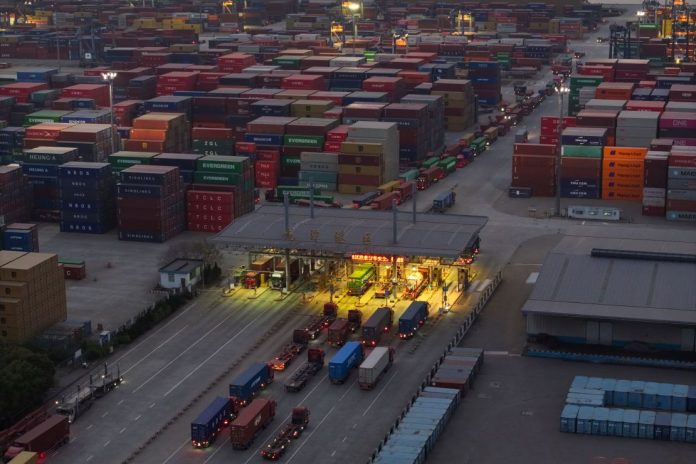During the week after announcing numerous tariffs, President Donald Trump acted like the fairy-tale King Canute – setting his throne on the shore and ordering the tide to stop. A week later, with his feet soaked and the water still rising, Trump grabbed a life preserver, The Washington Post reports.
By announcing a 90-day pause on most tariffs on all countries except China, he acknowledged, albeit reluctantly, the harsh realities of economics, foreign policy and domestic politics. Let’s deal with them in order.
1. The bond markets have forced their hand on Trump. By taking their money out of dollars and selling US Treasuries, investors told Trump what his closest advisers would not, about how dangerous it is to start trade wars with all other countries at once. Trillions were wiped out in stock markets and the financial system flashed red indicators of contagion.
Finally, bond yields began to portend trouble – especially the alarming sell-off in 10-year Treasury bonds. In times of panic, these bonds usually attract investors. This time they failed to do so, signalling a decline in confidence that the US government can pay its debts.
Leaders in their own interest underestimate the power of markets to destroy their credibility with the public. When money goes bad, politicians become vulnerable. In 2022, British Prime Minister Liz Truss ran a tax cut through Parliament amid inflation and said she would pay for it with debt. When markets plummeted, she cancelled the cut within days. But the Conservative Party ousted her after just seven weeks in power.
2. Trump realised that the United States needed allies to stand up to China. After China imposed tariffs of 84 per cent on all US goods in response to tariffs imposed last week, Trump raised tariffs on Chinese imports to 125 per cent. Alternative and reliable suppliers are needed to confront the world’s second largest economy in a sustained trade war.
At first, administration officials seemed to foolishly believe that Trump could strike deals with traditional partners like Japan, South Korea and Taiwan to unite against their common adversary in Beijing. But Trump’s unexpectedly aggressive tariffs against allies, including an irrational 46 per cent tariff on Vietnam, have rattled those countries. China is keen to capitalise on any differences and has sent its foreign minister to meet with Japanese and South Korean counterparts.
3. Trump has failed to reach a political consensus to rebuild the US economy. Although he won the 2024 election, he received just under 50 per cent of the popular vote. Although he campaigned on tariffs, his biggest supporters and donors did not take his protectionist rhetoric as seriously as they apparently should have. They expected only modest and targeted tariffs, more akin to those he imposed during his first term.
By Wednesday, the political pull had had its effect on the president. An Economist-YouGov poll showed Trump’s approval rating had fallen to 43 per cent from 48 per cent a fortnight ago, and 80 per cent of Americans expected the tariffs to raise the prices of the goods they buy. Privately, Republicans have also begun warning White House aides that if the president doesn’t suspend the tariffs, Democrats will win the House of Representatives in the 2026 midterm elections, and the battle for control of the Senate could suddenly become competitive.
After Trump finally announced he would suspend the tariffs, the S&P 500 index rose 9.5% and the Nasdaq tech index rose 12%. This news is indeed news to rejoice over. But don’t forget that the 90-day pause will only last until July 8, at which time the trade war with China could continue to escalate. In other words, investors, businesses and consumers will continue to live with uncertainty. In the long run, Trump and his team are advised to develop a less volatile economic strategy.
